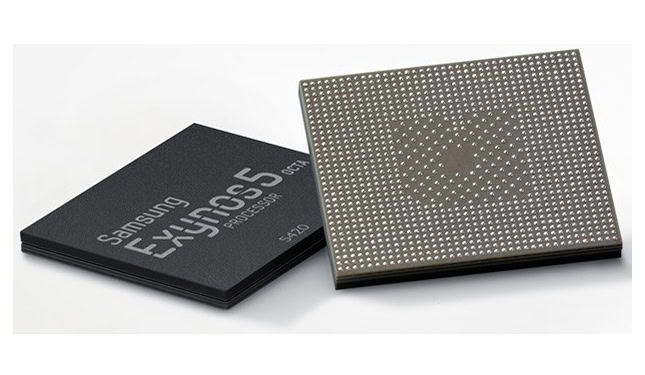Affiliate links on Android Authority may earn us a commission. Learn more.
Of course Samsung is going to use 64-bit chips in phones next year
Published onSeptember 12, 2013

The new iPhone 5s features a 64-bit processor, which is impressive, but it will be years until the jump to the new architecture proves truly useful. Yes, the 64-bit A7 chip is a good early start in the next growth cycle and is generally faster that previous 32-bit chips, but the main benefit of having a 64-bit chip on the iPhone – having more than 4GB of RAM – will not come into effect for years.
Of course, drab reality shouldn’t get in the way of good marketing, which is why I can’t blame Apple for touting the virtues of the first ever “desktop-class” 64-bit mobile processor. And, because Apple now has a perceived advantage in this area (at least in the eyes of less tech savvy customers), I expect marketers in the Android camp to eagerly jump on the 64-bit bandwagon in the close future.
Samsung is the first: co-CEO JK Shin told the Korea Times that the world’s largest smartphone maker would release the first devices running on a 64-bit chip next year:
[quote qtext=”Not in the shortest time. But yes, our next smartphones will have 64-bit processing functionality. ” qperson=”JK Shin” qsource=”” qposition=”center”]
While from Shin’s statement, it may seem that Samsung is living up to its fast follower reputation, truth is the move to 64-bit architecture in 2014 has been planned for years and is in no way sudden nor surprising.
ARM released the 64-bit ARMv8 architecture in late 2011, and the British chip designer outlined its roadmap for the 64-bit A50 chips due in 2014 just days ahead of Apple’s event. In this context, the fact that Samsung, and other ARM licensees, will have 64-bit chips next year is not really newsworthy.
Samsung will probably offer a device with 4GB of RAM in 2014
There’s a big difference between Apple and Samsung, though. The Korean company already has devices with 3GB of RAM – the Note 3 and the Galaxy Note 10.1 2014 Edition – and is expected to offer a phone with 4GB of RAM sometime in 2014.
In other words, for Samsung, moving to 64-bit will have a substantial effect much sooner than in the case of Apple, which still uses 1GB of RAM on the iPhone.
Now for the big question – which Samsung device will be the first to feature a 64-bit chip? That depends on Google’s plans for 64-bit support in Android: 4.4 KitKat may or may not be the first version to support it.
That aside, analyzing Samsung’s cycles in both mobile devices and components, it seems likely that the first phone with a 64-bit processor will be the Galaxy Note 4. In my opinion, Samsung will stick with a 32-bit processor for the Galaxy S5, which is what JK Shin seems to imply when he says “not in the shortest time”.